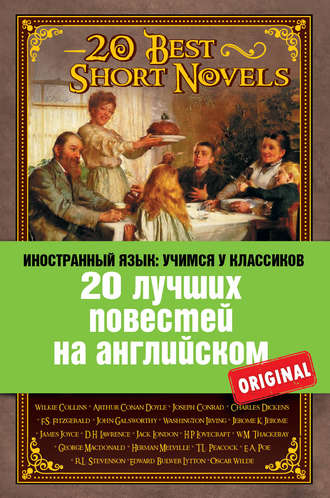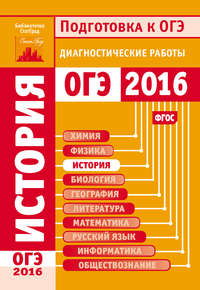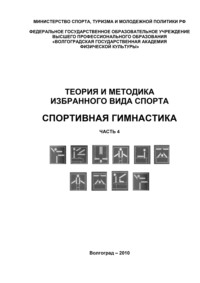
Полная версия
20 лучших повестей на английском / 20 Best Short Novels
I see that I have alluded above to his powers upon the violin. These were very remarkable, but as eccentric as all his other accomplishments. That he could play pieces, and difficult pieces, I knew well, because at my request he has played me some of Mendelssohn’s[67] Lieder[68], and other favourites. When left to himself, however, he would seldom produce any music or attempt any recognised air. Leaning back in his arm-chair of an evening, he would close his eyes and scrape carelessly at the fiddle which was thrown across his knee. Sometimes the chords were sonorous and melancholy. Occasionally they were fantastic and cheerful. Clearly they reflected the thoughts which possessed him, but whether the music aided those thoughts, or whether the playing was simply the result of a whim or fancy, was more than I could determine. I might have rebelled against these exasperating solos had it not been that he usually terminated them by playing in quick succession a whole series of my favourite airs as a slight compensation for the trial upon my patience.
During the first week or so we had no callers, and I had begun to think that my companion was as friendless a man as I was myself. Presently, however, I found that he had many acquaintances, and those in the most different classes of society. There was one little sallow, rat-faced, dark-eyed fellow, who was introduced to me as Mr. Lestrade, and who came three or four times in a single week. One morning a young girl called, fashionably dressed, and stayed for half an hour or more. The same afternoon brought a grey-headed, seedy visitor, looking like a Jew pedlar, who appeared to me to be much excited, and who was closely followed by a slip-shod elderly woman. On another occasion an old white-haired gentleman had an interview with my companion; and on another, a railway porter in his velveteen uniform. When any of these non-descript individuals put in an appearance, Sherlock Holmes used to beg for the use of the sitting-room, and I would retire to my bedroom. He always apologized to me for putting me to this inconvenience. ‘I have to use this room as a place of business,’ he said, ‘and these people are my clients.’ Again I had an opportunity of asking him a point-blank question, and again my delicacy prevented me from forcing another man to confide in me. I imagined at the time that he had some strong reason for not alluding to it, but he soon dispelled the idea by coming round to the subject of his own accord.
It was upon the 4th of March, as I have good reason to remember, that I rose somewhat earlier than usual, and found that Sherlock Holmes had not yet finished his breakfast. The landlady had become so accustomed to my late habits that my place had not been laid nor my coffee prepared. With the unreasonable petulance of mankind I rang the bell and gave a curt intimation that I was ready. Then I picked up a magazine from the table and attempted to while away the time with it, while my companion munched silently at his toast. One of the articles had a pencil mark at the heading, and I naturally began to run my eye through it.
Its somewhat ambitious title was ‘The Book of Life,’ and it attempted to show how much an observant man might learn by an accurate and systematic examination of all that came in his way. It struck me as being a remarkable mixture of shrewdness and of absurdity. The reasoning was close and intense, but the deductions appeared to me to be far-fetched and exaggerated. The writer claimed by a momentary expression, a twitch of a muscle or a glance of an eye, to fathom a man’s inmost thoughts. Deceit, according to him, was an impossibility in the case of one trained to observation and analysis. His conclusions were as infallible as so many propositions of Euclid[69]. So startling would his results appear to the uninitiated that until they learned the processes by which he had arrived at them they might well consider him as a necromancer.
‘‘From a drop of water,’ said the writer, ‘a logician could infer the possibility of an Atlantic or a Niagara[70] without having seen or heard of one of the other. So all life is a great chain, the nature of which is known whenever we are shown a single link of it. Like all other arts, the Science of Deduction[71] and Analysis is one which can only be acquired by long and patient study, nor is life long enough to allow any mortal to attain the highest possible perfection in it. Before turning to those moral and mental aspects of the matter which present the greatest difficulties, let the inquirer begin by mastering more elementary problems. Let him on meeting a fellow-mortal learn at a glance to distinguish the history of the man, and the trade or profession to which he belongs. Puerile as such an exercise may seem, it sharpens the faculties of observation, and teaches one where to look and what to look for. By a man’s finger-nails, by his coat-sleeve, by his boot, by his trouser-knees, by the callosities of his forefinger and thumb, by his expression, by his shirt-cuffs – by each of these things a man’s calling is plainly revealed. That all united should fail to enlighten the competent inquirer in any case is almost inconceivable.’
‘What ineffable twaddle!’ I cried, slapping the magazine down on the table; ‘I never read such rubbish in my life.’
‘What is it?’ asked Sherlock Holmes.
‘Why this article,’ I said, pointing at it with my egg-spoon as I sat down to my breakfast.
‘I see that you have read it since you have marked it. I don’t deny that it is smartly written. It irritates me though. It is evidently the theory of some arm-chair lounger who evolves all these neat little paradoxes in the seclusion of his own study. It is not practical. I should like to see him clapped down in a third-class carriage on the Underground, and asked to give the trades of all his fellow-travellers. I would lay a thousand to one against him.’
‘You would lose your money,’ Holmes remarked calmly. ‘As for the article, I wrote it myself.’
‘You!’
‘Yes; I have a turn both for observation and for deduction. The theories which I have expressed there, and which appear to you to be so chimerical[72], are really extremely practical – so practical that I depend upon them for my bread and cheese.’
‘And how?’ I asked involuntarily.
‘Well, I have a trade of my own. I suppose I am the only one in the world. I’m a consulting detective, if you can understand what that is. Here in London we have lots of Government detectives and lots of private ones. When these fellows are at fault, they come to me, and I manage to put them on the right scent. They lay all the evidence before me, and I am generally able, by the hold of my knowledge of the history of crime, to set them straight. There is a strong family resemblance about misdeeds, and if you have all the details of a thousand at your finger ends, it is odd if you can’t unravel the thousand and first. Lestrade is a well-known detective. He got himself into a fog recently over a forgery case, and that was what brought him here.’
‘And these other people?’
‘They are mostly sent on by private inquiry agencies. They are all people who are in trouble about something, and want a little enlightening. I listen to their story, they listen to my comments, and then I pocket my fee.’
‘But do you mean to say,’ I said, ‘that without leaving your room you can unravel some knot which other men can make nothing of, although they have seen every detail for themselves?’
‘Quite so. I have a kind of intuition that way. Now and again a case turns up which is a little more complex. Then I have to bustle about and see things with my own eyes. You see I have a lot of special knowledge which I apply to the problem, and which facilitates matters wonderfully. Those rules of deduction laid down in that article which aroused your scorn are invaluable to me in practical work. Observation with me is second nature. You appeared to be surprised when I told you, on our first meeting, that you had come from Afghanistan.’
‘You were told, no doubt.’
‘Nothing of the sort. Iknew you came from Afghanistan. From long habit the train of thoughts ran so swiftly through my mind that I arrived at the conclusion without being conscious of intermediate steps. There were such steps, however. The train of reasoning ran, ‘Here is a gentleman of the medical type, but with the air of a military man. Clearly an army doctor, then. He has just come from the tropics, for his face is dark, and that is not the natural tint of his skin, for his wrists are fair. He has undergone hardship and sickness, as his haggard face says clearly. His left arm has been injured: He holds it in a stiff and unnatural manner. Where in the tropics could an English army doctor have seen much hardship and got his arm wounded? Clearly in Afghanistan.’ The whole train of thought did not occupy a second. I then remarked that you came from Afghanistan, and you were astonished.’
‘It is simple enough as you explain it,’ I said smiling. ‘You remind me of Edgar Allen Poe’s[73] Dupin. I had no idea that such individuals did exist outside of stories.’
Sherlock Holmes rose and lit his pipe. ‘No doubt you think that you are complimenting me in comparing me to Dupin,’ he observed. ‘Now, in my opinion, Dupin was a very inferior fellow. That trick of his of breaking in on his friends’ thoughts with an apropos remark after a quarter of an hour’s silence is really very showy and superficial. He had some analytical genius, no doubt; but he was by no means such a phenomenon as Poe appeared to imagine.’
‘Have you read Gaboriau’s[74] works?’ I asked. ‘Does Lecoq come up to your idea of a detective?’
Sherlock Holmes sniffed sardonically. ‘Lecoq was a miserable bungler,’ he said, in an angry voice; ‘he had only one thing to recommend him, and that was his energy. That book made me positively ill. The question was how to identify an unknown prisoner. I could have done it in twenty-four hours. Lecoq took six months or so. It might be made a text-book for detectives to teach them what to avoid.’
I felt rather indignant at having two characters whom I had admired treated in this cavalier style. I walked over to the window, and stood looking out into the busy street. ‘This fellow may be very clever,’ I said to myself, ‘but he is certainly very conceited.’
‘There are no crimes and no criminals in these days,’ he said, querulously. ‘What is the use of having brains in our profession. I know well that I have it in me to make my name famous. No man lives or has ever lived who has brought the same amount of study and of natural talent to the detection of crime which I have done. And what is the result? There is no crime to detect, or, at most, some bungling villainy with a motive so transparent that even a Scotland Yard official can see through it.’
I was still annoyed at his bumptious style of conversation; I thought it best to change the topic.
‘I wonder what that fellow is looking for?’ I asked, pointing to a stalwart, plainly-dressed individual who was walking slowly down the other side of the street, looking anxiously at the numbers. He had a large blue envelope in his hand, and was evidently the bearer of a message.
‘You mean the retired sergeant of Marines,’ said Sherlock Holmes.
‘Brag and bounce!’ thought I to myself. ‘He knows that I cannot verify his guess.’
The thought had hardly passed through my mind when the man whom we were watching caught sight of the number on our door, and ran rapidly across the roadway. We heard a loud knock, a deep voice below, and heavy steps ascending the stairs.
‘For Mr. Sherlock Holmes,’ he said, stepping into the room and handing my friend the letter.
Here was an opportunity of taking the conceit out of him. He little thought of this when he made that random shot. ‘May I ask, my lad,’ I said, in the blandest voice, ‘what your trade may be?’
‘Commissionaire, sir,’ he said, gruffly. ‘Uniform away for repairs.’
‘And you were?’ I asked, with a slightly malicious glance at my companion.
‘A sergeant, sir, Royal Marine Light Infantry, sir. No answer? Right, sir.’
He clicked his heels together, raised his hand in a salute, and was gone.
Chapter III
The Lauriston Gardens mystery
I confess that I was considerably startled by this fresh proof of the practical nature of my companion’s theories. My respect for his power of analysis increased wondrously. There still remained some lurking suspicion in my mind, however, that the whole thing was a prearranged episode, intended to dazzle me, though what earthly object he could have in taking me in was past my comprehension. When I looked at him, he had finished reading the note, and his eyes had assumed the vacant, lack-lustre expression which showed mental abstraction.
‘How in the world did you deduce that?’ I asked.
‘Deduce what?’ said he, petulantly.
‘Why, that he was a retired sergeant of Marines.’
‘I have no time for trifles,’ he answered, brusquely; then with a smile, ‘Excuse my rudeness. You broke the thread of my thoughts; but perhaps it is as well. So you actually were not able to see that that man was a sergeant of Marines?’
‘No, indeed.’
‘It was easier to know it than to explain why I know it. If you were asked to prove that two and two made four, you might find some difficulty, and yet you are quite sure of the fact. Even across the street I could see a great blue anchor tattooed on the back of the fellow’s hand. That smacked of the sea. He had a military carriage, however, and regulation side whiskers. There we have the marine. He was a man with some amount of self-importance and a certain air of command. You must have observed the way in which he held his head and swung his cane. A steady, respectable, middle-aged man, too, on the face of him – all facts which led me to believe that he had been a sergeant.’
‘Wonderful!’ I ejaculated.
‘Commonplace,’ said Holmes, though I thought from his expression that he was pleased at my evident surprise and admiration. ‘I said just now that there were no criminals. It appears that I am wrong – look at this!’ He threw me over the note which the commissionaire had brought.
‘Why,’ I cried, as I cast my eye over it, ‘this is terrible!’
‘It does seem to be a little out of the common,’ he remarked, calmly. ‘Would you mind reading it to me aloud?’
This is the letter which I read to him, —
‘My dear Mr. Sherlock Holmes, —
‘There has been a bad business during the night at 3, Lauriston Gardens, off the Brixton Road. Our man on the beat saw a light there about two in the morning, and as the house was an empty one, suspected that something was amiss. He found the door open, and in the front room, which is bare of furniture, discovered the body of a gentleman, well dressed, and having cards in his pocket bearing the name of ‘Enoch J. Drebber, Cleveland[75], Ohio[76], U.S.A.’ There had been no robbery, nor is there any evidence as to how the man met his death. There are marks of blood in the room, but there is no wound upon his person. We are at a loss as to how he came into the empty house; indeed, the whole affair is a puzzler. If you can come round to the house any time before twelve, you will find me there. I have left everything in status quo[77] until I hear from you. If you are unable to come, I shall give you fuller details, and would esteem it a great kindness if you would favour me with your opinion.
‘Yours faithfully, ’Tobias Gregson.’‘Gregson is the smartest of the Scotland Yarders,’ my friend remarked; ‘he and Lestrade are the pick of a bad lot. They are both quick and energetic, but conventional – shockingly so. They have their knives into one another, too. They are as jealous as a pair of professional beauties. There will be some fun over this case if they are both put upon the scent.’
I was amazed at the calm way in which he rippled on. ‘Surely there is not a moment to be lost,’ I cried; ‘shall I go and order you a cab?’
‘I’m not sure about whether I shall go. I am the most incurably lazy devil that ever stood in shoe leather – that is, when the fit is on me, for I can be spry enough at times.’
‘Why, it is just such a chance as you have been longing for.’
‘My dear fellow, what does it matter to me? Supposing I unravel the whole matter, you may be sure that Gregson, Lestrade, and Co. will pocket all the credit. That comes of being an unofficial personage.’
‘But he begs you to help him.’
‘Yes. He knows that I am his superior, and acknowledges it to me; but he would cut his tongue out before he would own it to any third person. However, we may as well go and have a look. I shall work it out on my own hook. I may have a laugh at them, if I have nothing else. Come on!’
He hustled on his overcoat, and bustled about in a way that showed that an energetic fit had superseded the apathetic one.
‘Get your hat,’ he said.
‘You wish me to come?’
‘Yes, if you have nothing better to do.’ A minute later we were both in a hansom, driving furiously for the Brixton Road.
It was a foggy, cloudy morning, and a dun-coloured veil hung over the house-tops, looking like the reflection of the mud-coloured streets beneath. My companion was in the best of spirits, and prattled away about Cremona[78] fiddles, and the difference between a Stradivarius[79] and an Amati[80]. As for myself, I was silent, for the dull weather and the melancholy business upon which we were engaged, depressed my spirits.
‘You don’t seem to give much thought to the matter in hand,’ I said at last, interrupting Holmes’ musical disquisition.
‘No data yet,’ he answered. ‘It is a capital mistake to theorize before you have all the evidence. It biases the judgment.’
‘You will have your data soon,’ I remarked, pointing with my finger; ‘this is the Brixton Road, and that is the house, if I am not very much mistaken.’
‘So it is. Stop, driver, stop!’ We were still a hundred yards or so from it, but he insisted upon our alighting, and we finished our journey upon foot.
Number 3, Lauriston Gardens wore an ill-omened and minatory look. It was one of four which stood back some little way from the street, two being occupied and two empty. The latter looked out with three tiers of vacant melancholy windows, which were blank and dreary, save that here and there a ‘To Let’ card had developed like a cataract[81] upon the bleared panes. A small garden sprinkled over with a scattered eruption of sickly plants separated each of these houses from the street, and was traversed by a narrow pathway, yellowish in colour, and consisting apparently of a mixture of clay and of gravel. The whole place was very sloppy from the rain which had fallen through the night. The garden was bounded by a three-foot brick wall with a fringe of wood rails upon the top, and against this wall was leaning a stalwart police constable, surrounded by a small knot of loafers, who craned their necks and strained their eyes in the vain hope of catching some glimpse of the proceedings within.
I had imagined that Sherlock Holmes would at once have hurried into the house and plunged into a study of the mystery. Nothing appeared to be further from his intention. With an air of nonchalance which, under the circumstances, seemed to me to border upon affectation, he lounged up and down the pavement, and gazed vacantly at the ground, the sky, the opposite houses and the line of railings. Having finished his scrutiny, he proceeded slowly down the path, or rather down the fringe of grass which flanked the path, keeping his eyes riveted upon the ground. Twice he stopped, and once I saw him smile, and heard him utter an exclamation of satisfaction. There were many marks of footsteps upon the wet clayey soil; but since the police had been coming and going over it, I was unable to see how my companion could hope to learn anything from it. Still I had had such extraordinary evidence of the quickness of his perceptive faculties, that I had no doubt that he could see a great deal which was hidden from me.
At the door of the house we were met by a tall, white-faced, flaxen-haired man, with a notebook in his hand, who rushed forward and wrung my companion’s hand with effusion. ‘It is indeed kind of you to come,’ he said, ‘I have had everything left untouched.’
‘Except that!’ my friend answered, pointing at the pathway. ‘If a herd of buffaloes had passed along there could not be a greater mess. No doubt, however, you had drawn your own conclusions, Gregson, before you permitted this.’
‘I have had so much to do inside the house,’ the detective said evasively. ‘My colleague, Mr. Lestrade, is here. I had relied upon him to look after this.’
Holmes glanced at me and raised his eyebrows sardonically. ‘With two such men as yourself and Lestrade upon the ground, there will not be much for a third party to find out,’ he said.
Gregson rubbed his hands in a self-satisfied way. ‘I think we have done all that can be done,’ he answered; ‘it’s a queer case though, and I knew your taste for such things.’
‘You did not come here in a cab?’ asked Sherlock Holmes.
‘No, sir.’
‘Nor Lestrade?’
‘No, sir.’
‘Then let us go and look at the room.’ With which inconsequent remark he strode on into the house, followed by Gregson, whose features expressed his astonishment.
A short passage, bare-planked and dusty, led to the kitchen and offices. Two doors opened out of it to the left and to the right. One of these had obviously been closed for many weeks. The other belonged to the dining-room, which was the apartment in which the mysterious affair had occurred. Holmes walked in, and I followed him with that subdued feeling at my heart which the presence of death inspires.
It was a large square room, looking all the larger from the absence of all furniture. A vulgar flaring paper adorned the walls, but it was blotched in places with mildew; and here and there great strips had become detached and hung down, exposing the yellow plaster beneath. Opposite the door was a showy fireplace, surmounted by a mantelpiece of imitation white marble. On one corner of this was stuck the stump of a red wax candle. The solitary window was so dirty that the light was hazy and uncertain, giving a dull grey tinge to everything, which was intensified by the thick layer of dust which coated the whole apartment.
All these details I observed afterwards. At present my attention was centred upon the single, grim, motionless figure which lay stretched upon the boards, with vacant, sightless eyes staring up at the discoloured ceiling. It was that of a man about forty-three or forty-four years of age, middle-sized, broad-shouldered, with crisp curling black hair, and a short, stubbly beard. He was dressed in a heavy broadcloth frock coat and waistcoat, with light-coloured trousers, and immaculate collar and cuffs. A top hat, well brushed and trim, was placed upon the floor beside him. His hands were clenched and his arms thrown abroad, while his lower limbs were interlocked, as though his death struggle had been a grievous one. On his rigid face there stood an expression of horror, and as it seemed to me, of hatred, such as I have never seen upon human features. This malignant and terrible contortion, combined with the low forehead, blunt nose, and prognathous jaw, gave the dead man a singularly simious and ape-like appearance, which was increased by his writhing, unnatural posture. I have seen death in many forms, but never has it appeared to me in a more fearsome aspect than in that dark, grimy apartment, which looked out upon one of the main arteries of suburban London.
Lestrade, lean and ferret-like as ever, was standing by the door-way, and greeted my companion and myself.
‘This case will make a stir, sir,’ he remarked. ‘It beats anything I have seen, and I am no chicken.’
‘There is no clue?’ said Gregson.
‘None at all,’ chimed in Lestrade.
Sherlock Holmes approached the body, and kneeling down, examined it intently. ‘You are sure that there is no wound?’ he asked, pointing to numerous gouts and splashes of blood which lay all round.
‘Positive!’ cried both detectives.
‘Then, of course, this blood belongs to a second individual – presumably the murderer, if murder has been committed. It reminds me of the circumstances attendant on the death of Van Jansen, in Utrecht[82], in the year ’34. Do you remember the case, Gregson?’
‘No, sir.’
‘Read it up – you really should. There is nothing new under the sun. It has all been done before.’












